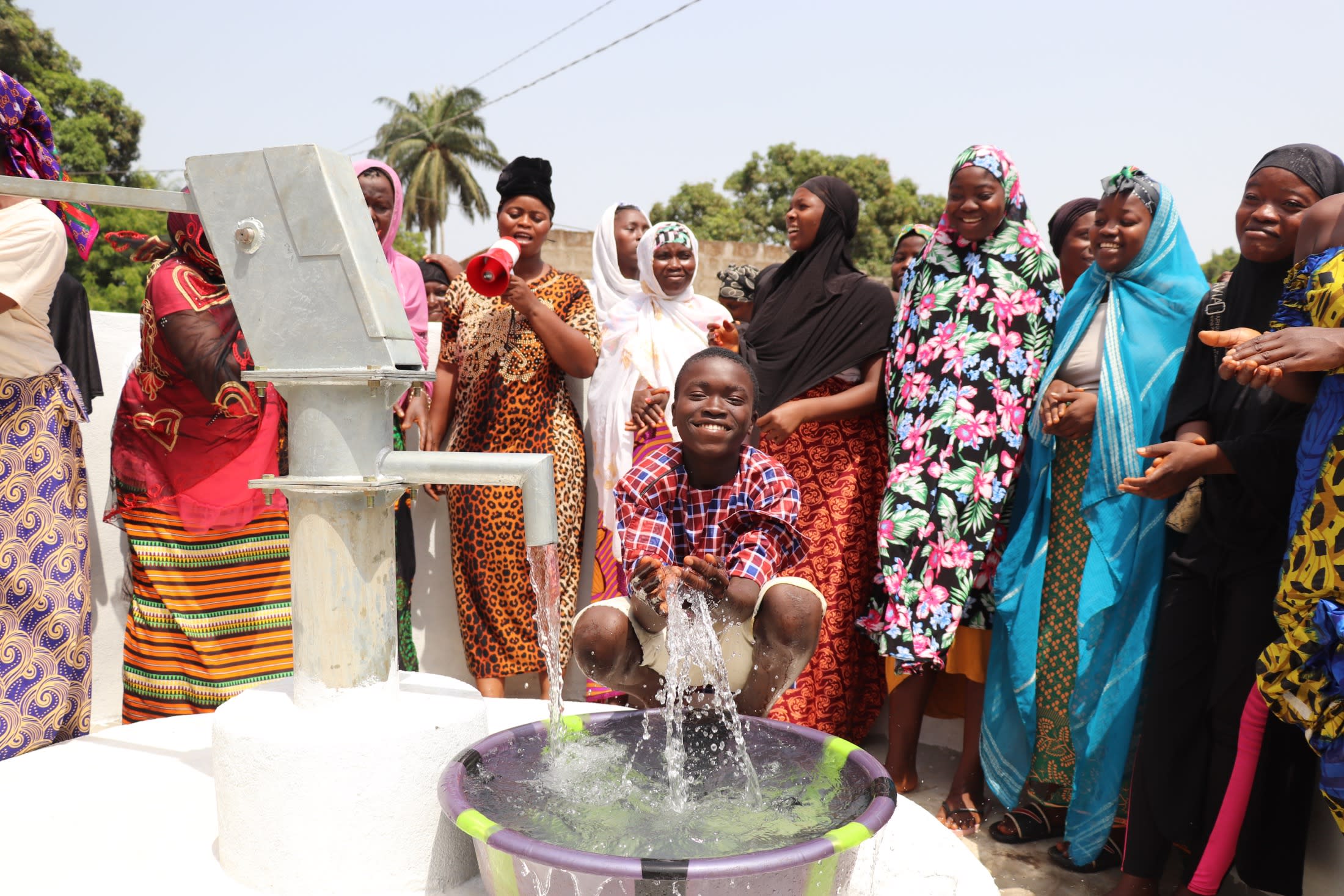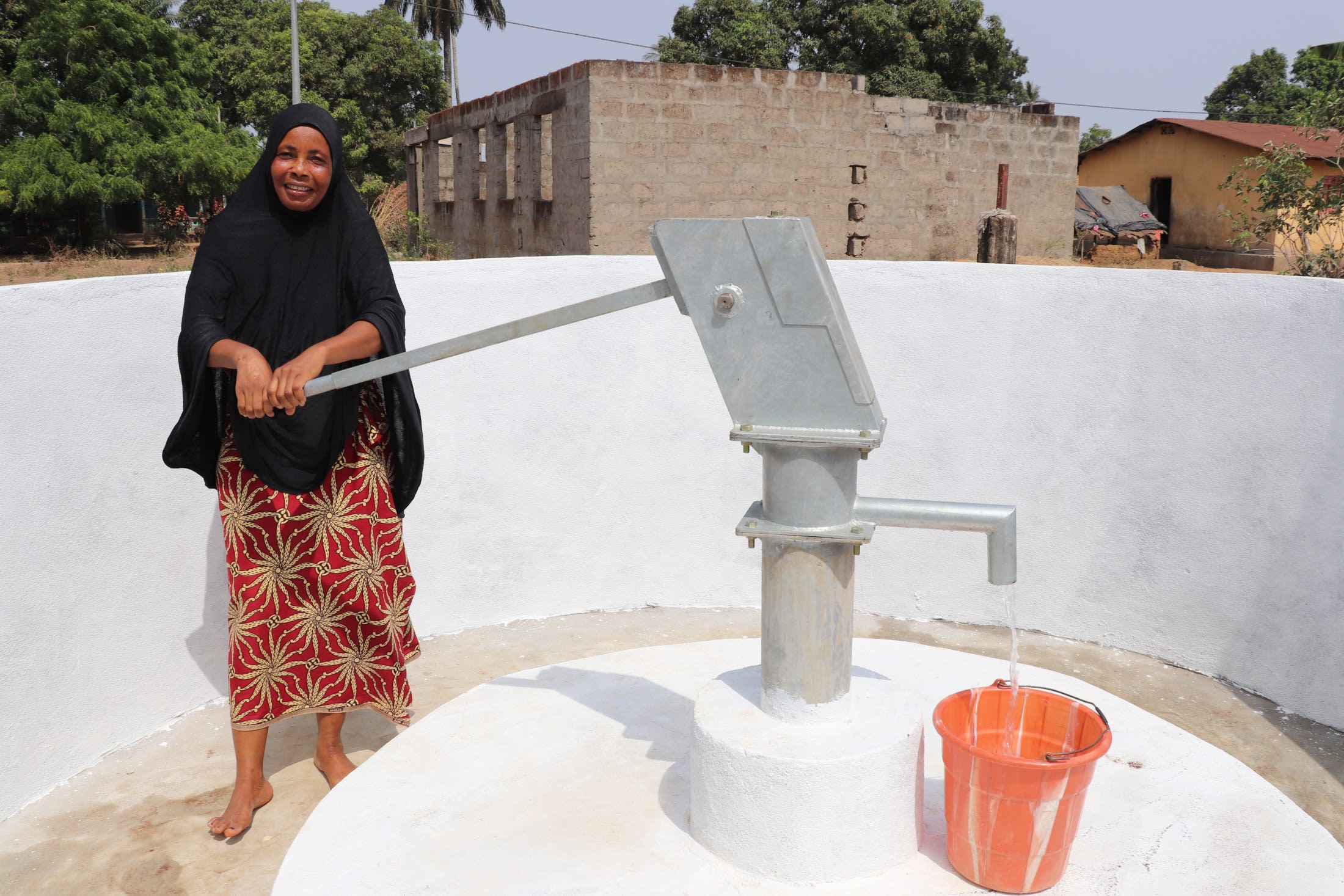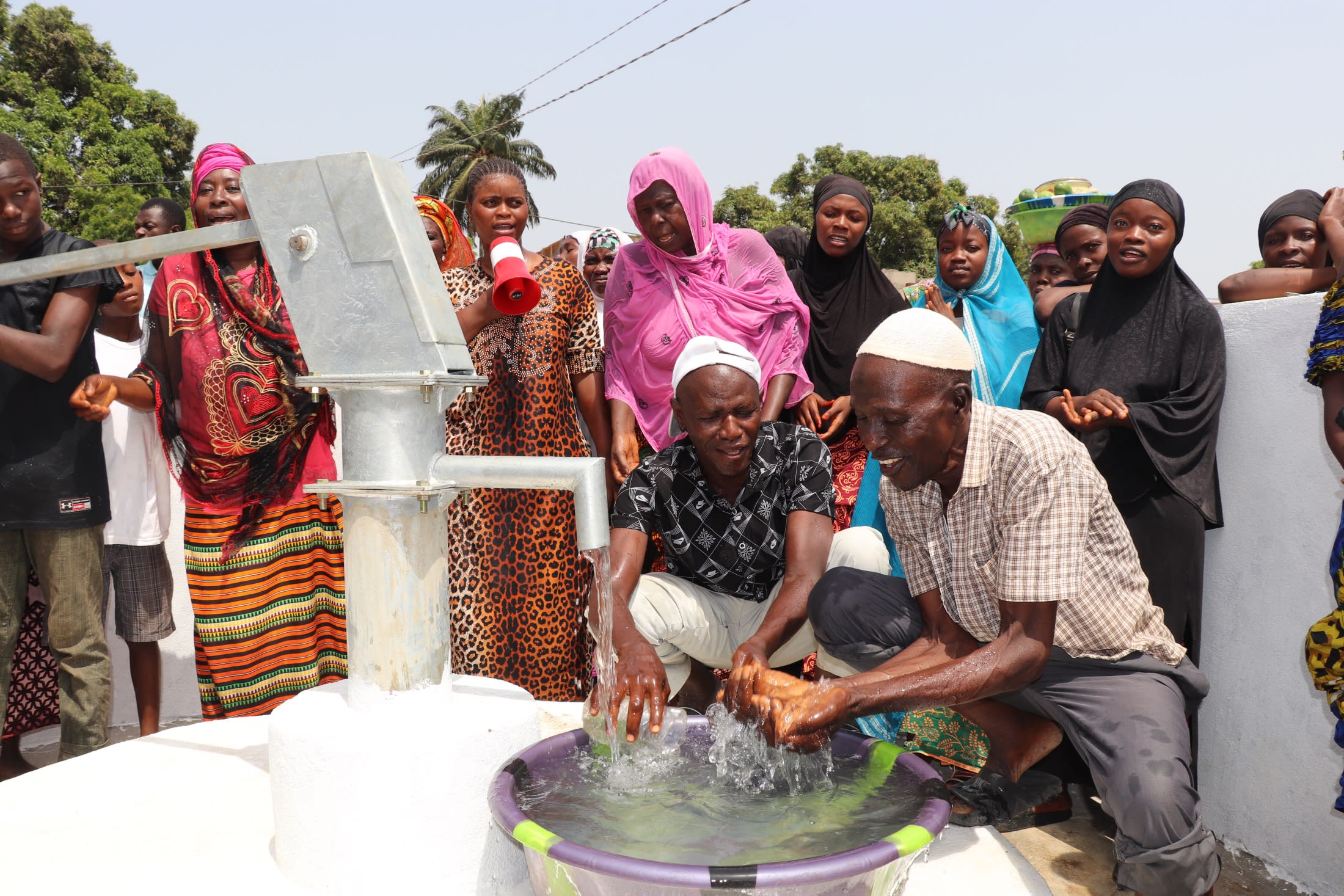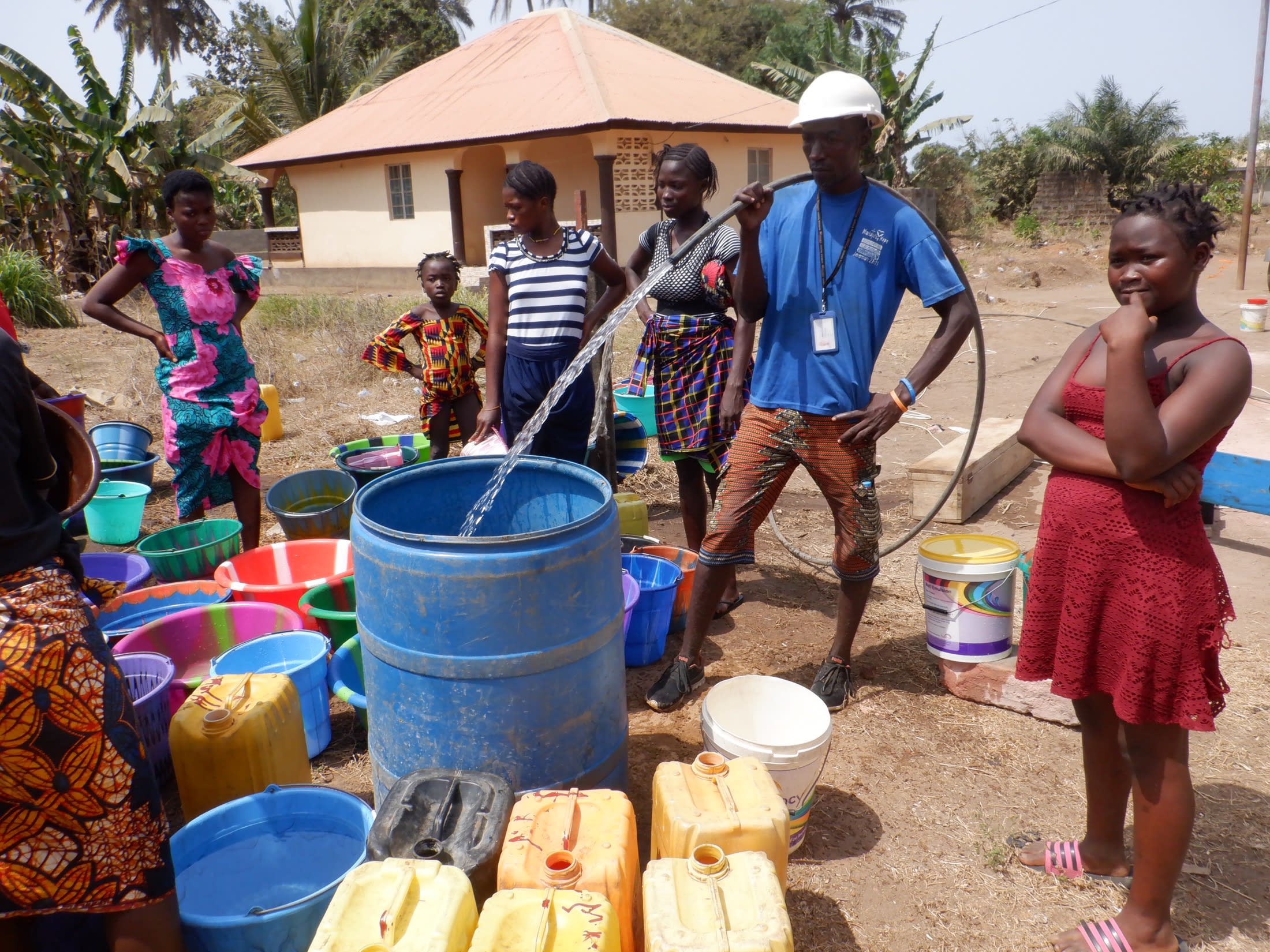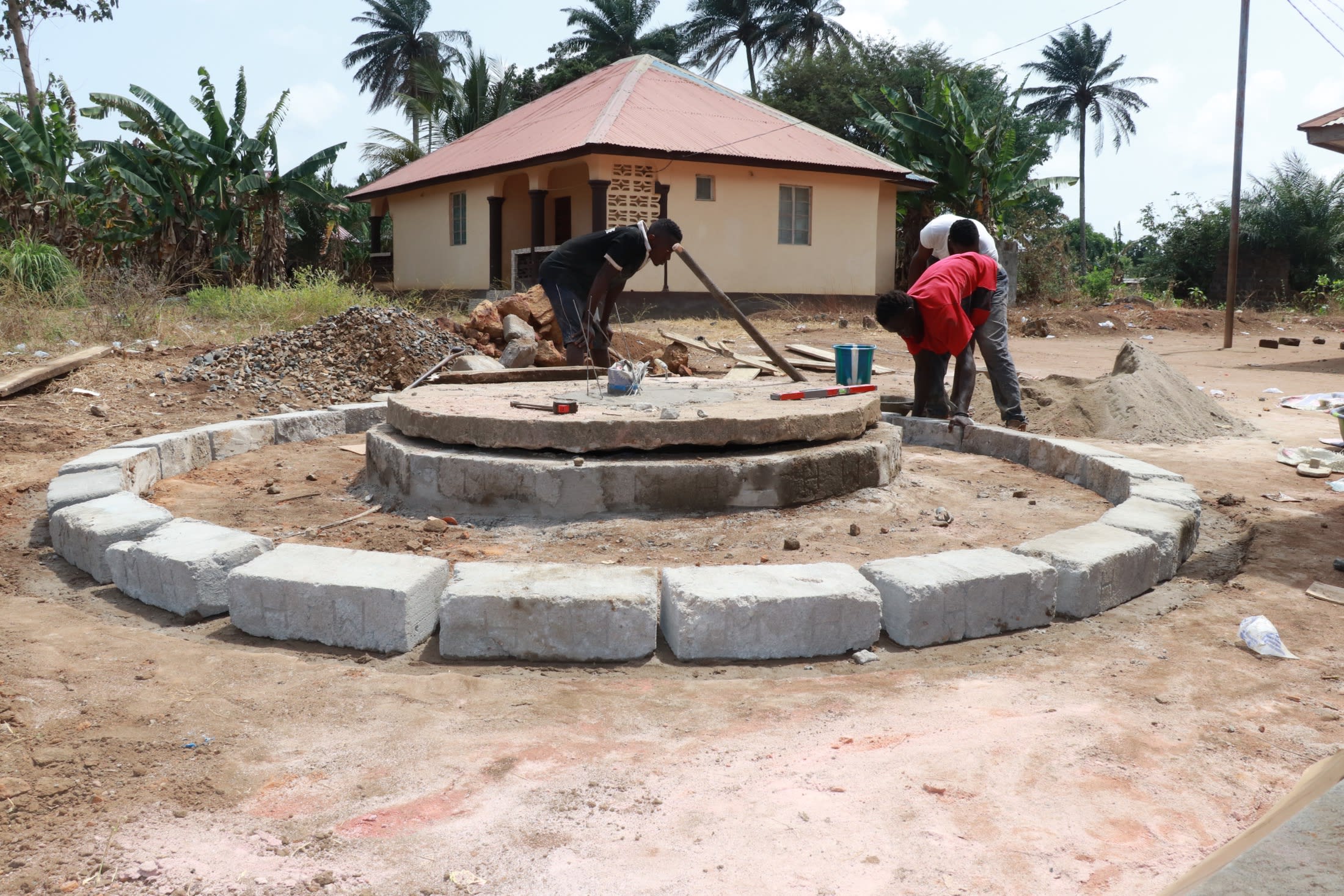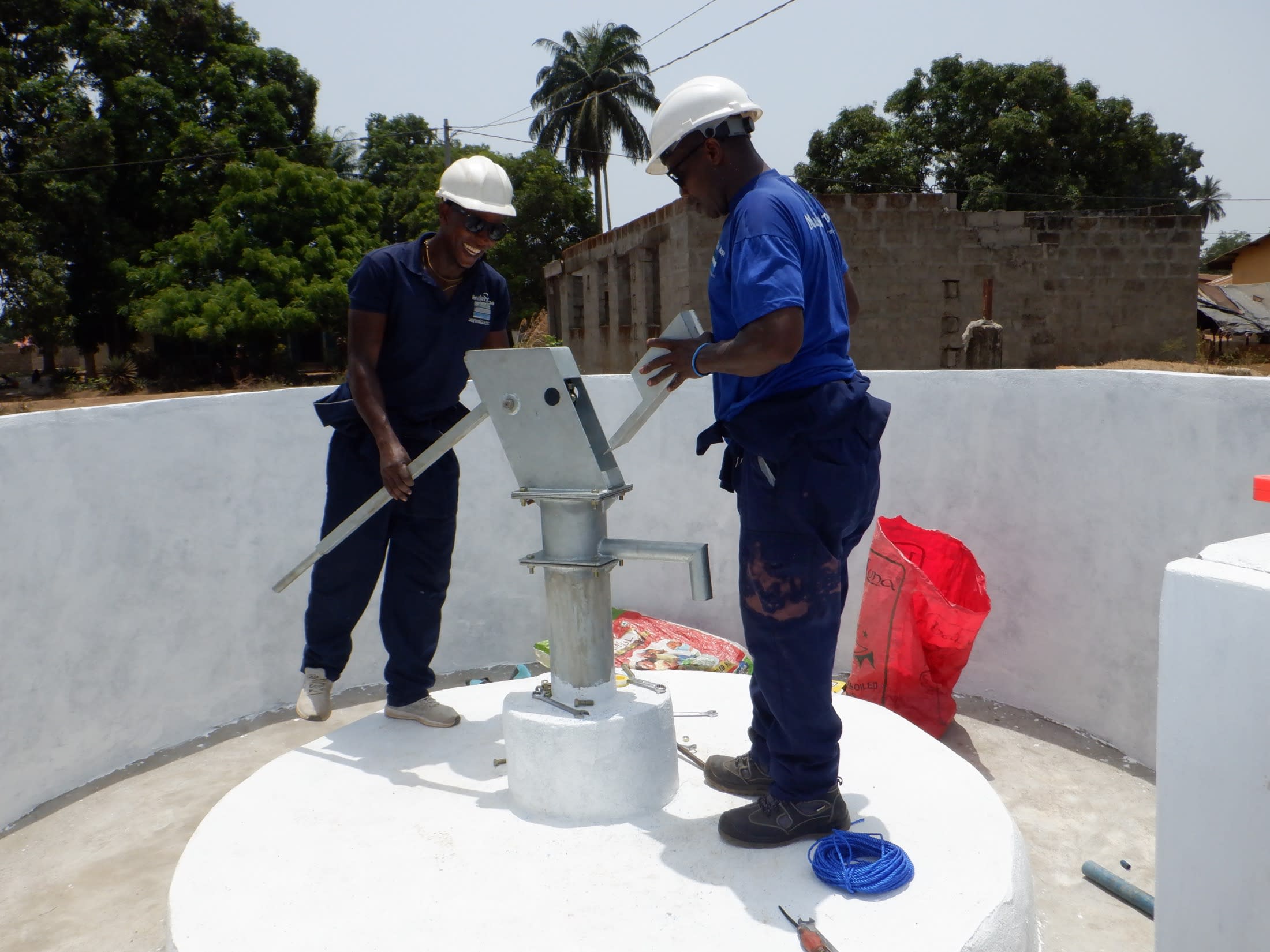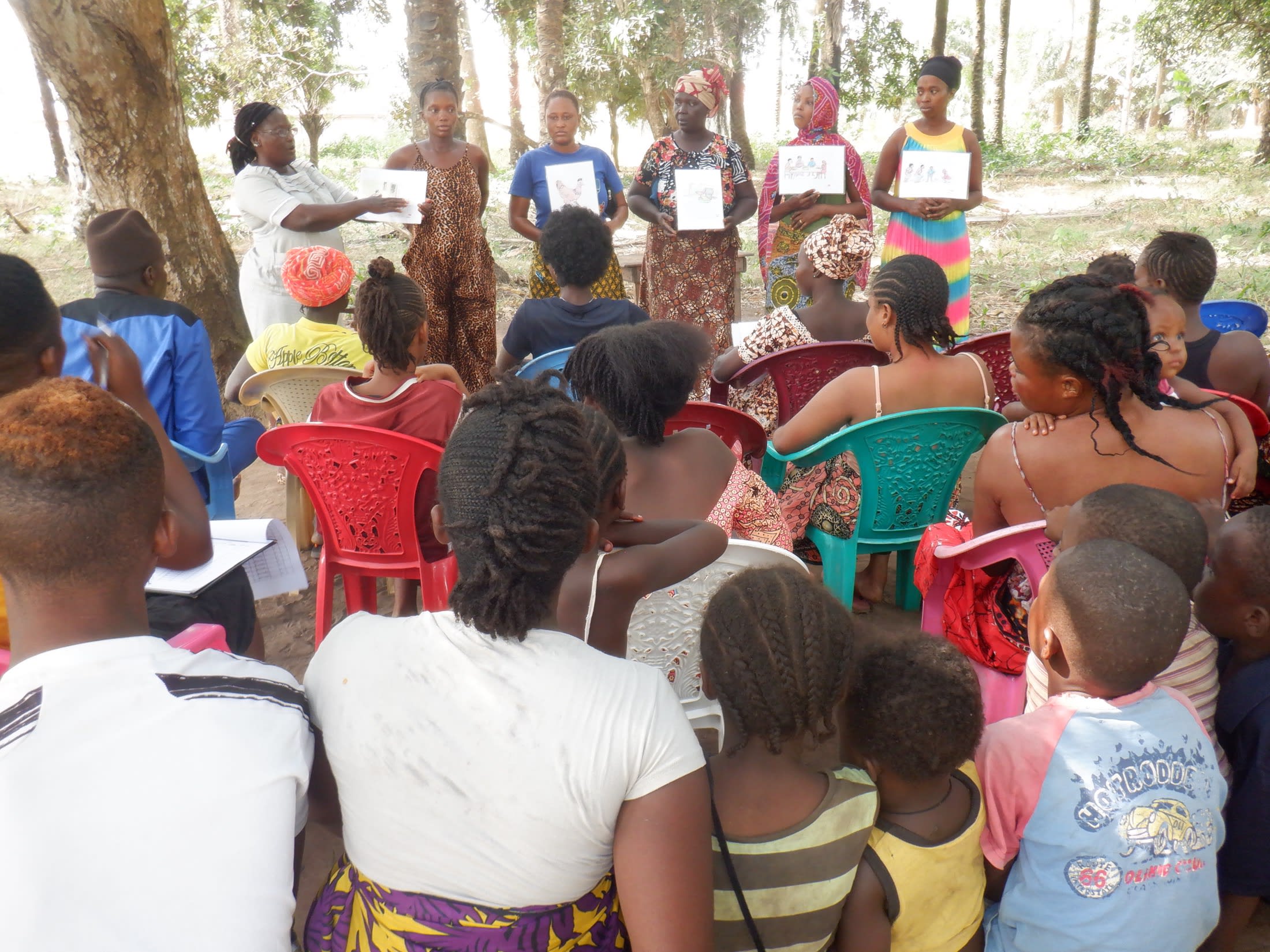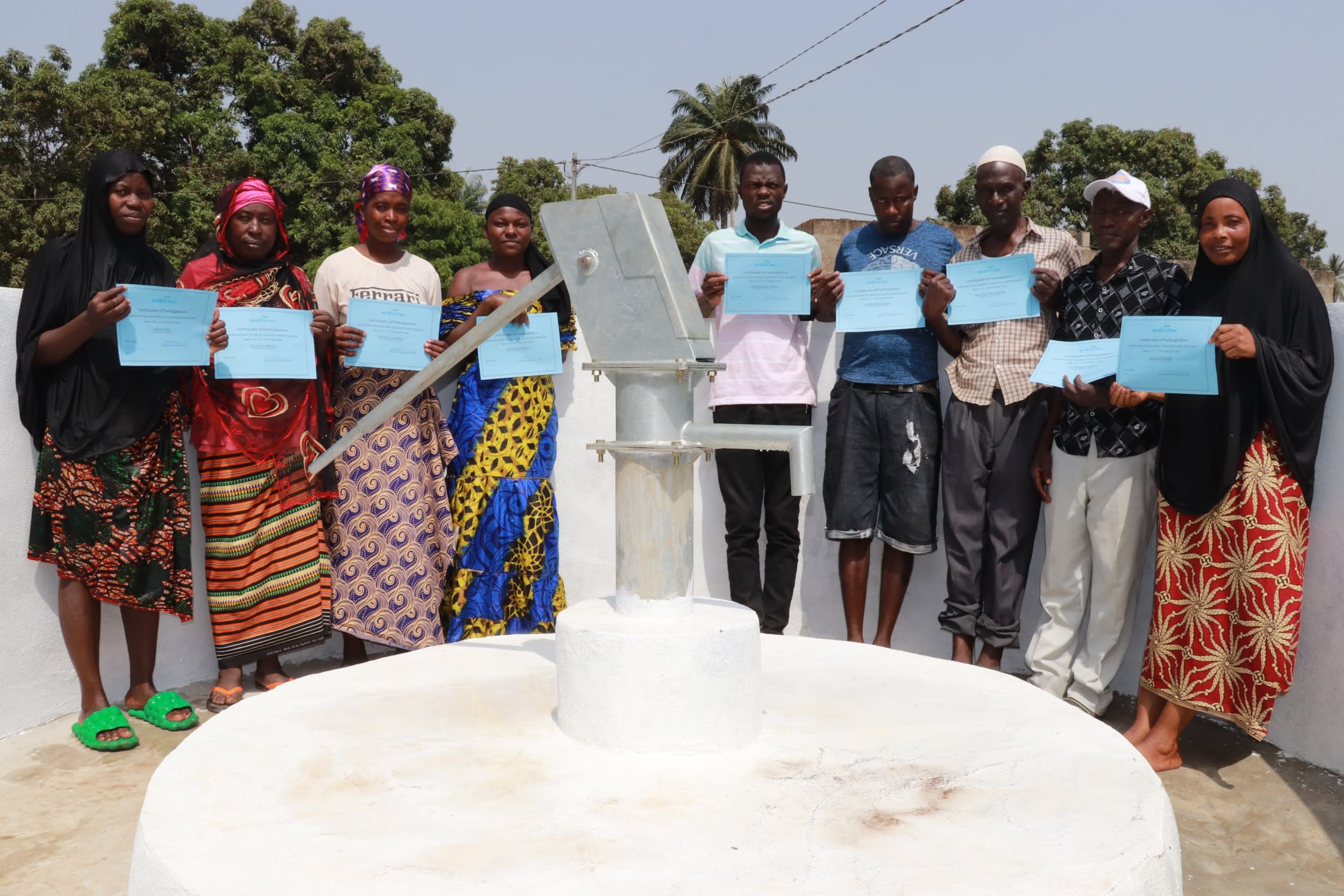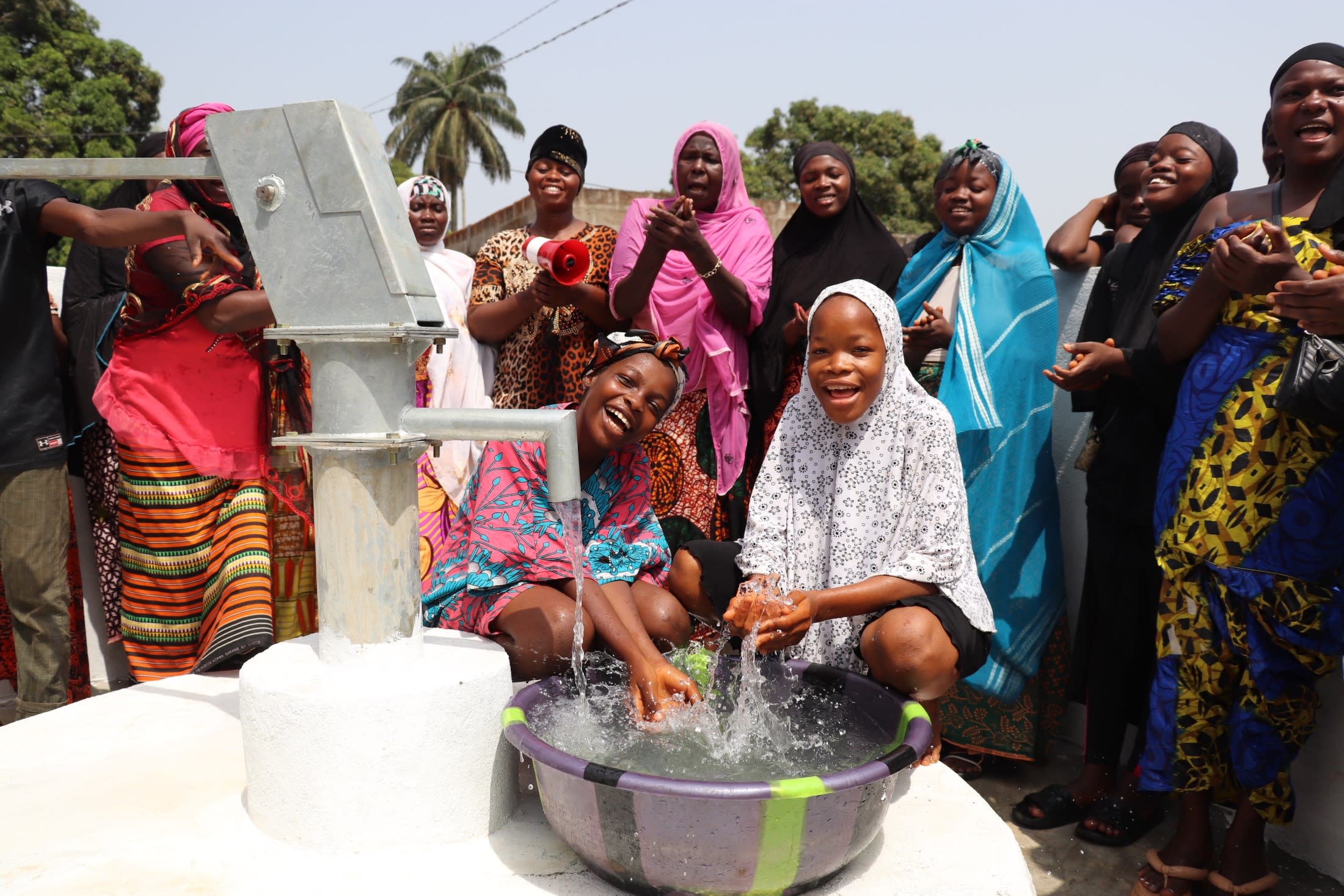The main well in Tombo Lol has not been functioning for a long time, which makes life much harder for the 240 people who live there. Now, the alternative well, at the local mosque, has stopped yielding water in March and April each year.
Even worse is that the water from the alternative well is not safe to drink and has a "slippery" texture when used for household purposes. Community members are left with no choice but to drink the water regardless or to purchase water — a luxury not many in this village can afford.
Because there were once more water sources in the community, the alternative well at the mosque is overcrowded, and water-fetchers must wait in long lines to fetch even one container of water. This means that basic tasks take longer or are skipped entirely. Water is needed for cooking, bathing, laundering clothes, and cleaning houses/latrines. When the lines are too long, only the lucky can fetch enough water to accomplish anything.
Kids like 14-year-old Sheka spend a long time waiting for water only to be pushed back in line by adults who insist that children must respect their elders by yielding their place in line, as Sheka explained.
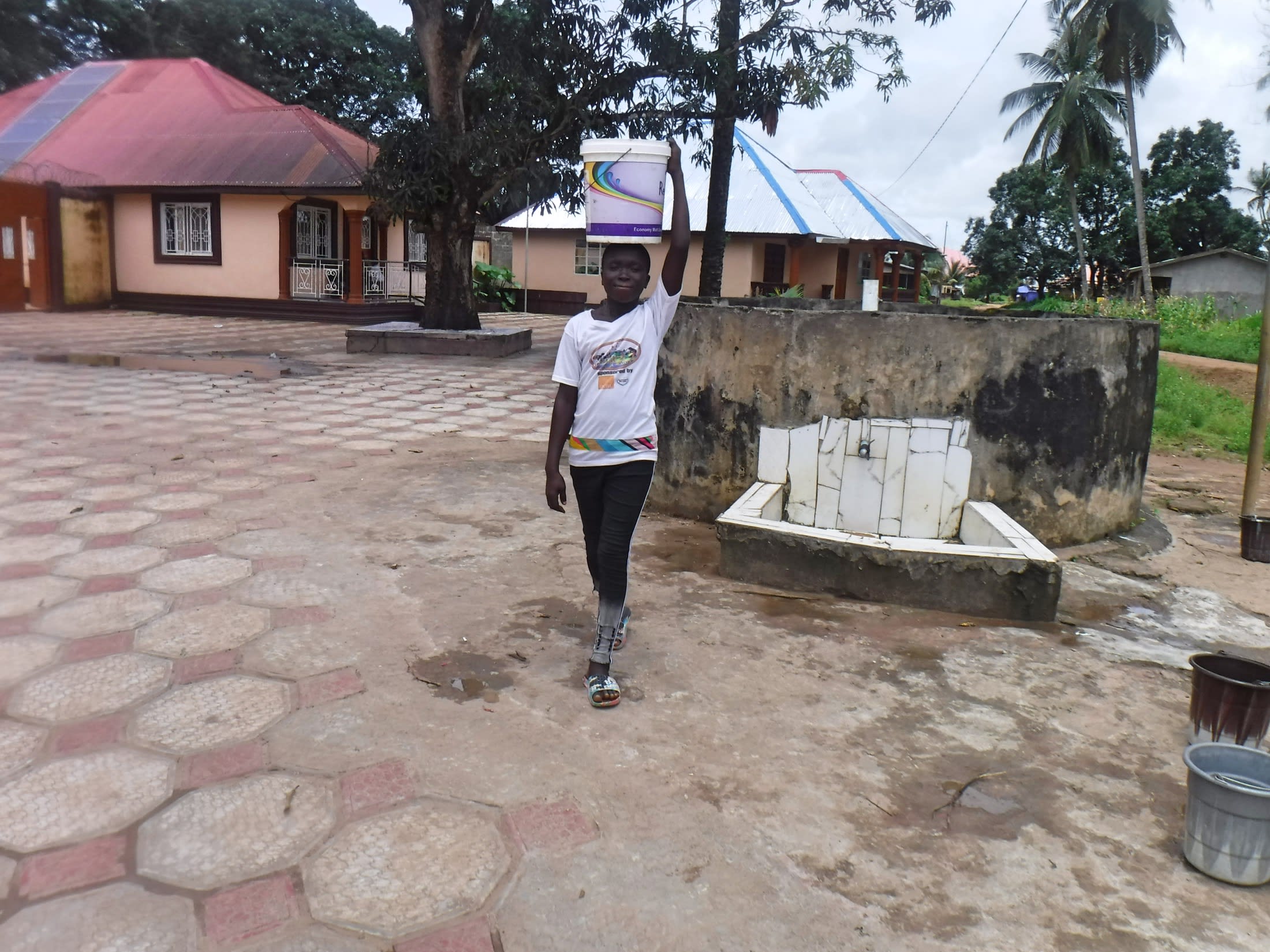
"I must exercise patiently for my turn to fetch water," Sheka (shown in the picture above) said. "There are times when elders would take advantage of me because of my age. Even though it is my turn to fetch water, they would not allow me, except [if] I call my parents. This makes me waste a lot of time. By the time I eventually fetch water, I will get limited time to prepare for school. Sometimes for me to be punctual in school, I will deliberately skip the household chores."
But Sheka's daily water troubles don't stop there.
"After school, I will come home to complete [the chores I skipped]," Sheka continued. "This is really affecting me, especially during exams. I will go to the well at about 5:00 pm to fetch water, and I will not return home till 7:00 pm. After fetching water and transporting the water, I will help my mother to cook. By the time we complete cooking, I will be very tired. This has affected my [academic] performance because I have less time for my studies."

42-year-old trader Salamatu Barrie (shown above) also hates waiting in line for water, though it's for another reason. "The preferential treatment that is given to others is what really pains me," she said.
"It is a normal practice for the pump caretaker to allow the first person that comes to the water point to fetch water. Even if the person comes with twenty containers, he will allow the person to fetch all of the containers. This situation deprives me from fetching water on time. This really affects me because I will spend a lot of time waiting at the water point. Also, the overcrowding at the water source sometimes affects my trading time, [which] causes me not to have enough sales at times. Sometimes, the water crisis causes me not to prepare meals on time for my family. This causes us to eat late at night."
Sometimes, the well even closes altogether on days when the mosque hosts an event like a wedding or funeral. The water scarcity in Tombo Lol makes times of increased water need especially difficult.
"I will never forget the time I was building my house," Salamatu said. "I suffered a lot to fetch water to do construction. The people that own the source will open and close [it] whenever they like. Even if I plead with them to allow me to fetch water, they will not allow me [to]. That is why I end up paying bike riders to fetch and transport water for the builders to mix the sand and cement. This was very expensive, because more water was required to build the house. By the time they raised the foundation of the building, I [had spent] an exorbitant sum of money. This money should have been used to settle other important things at home."
"I am happy today that [you are] coming to our aid to rehabilitate our water source so we [will] have enough water [to] cook, do laundering, and drink," Salamatu concluded.
Here’s what we’re going to do about it:
Well Rehabilitation
The well marked for this overhaul is dry for a few months every year and needs major work to supply adequate, clean water to the community year round. The pump will be removed, and a hand auger will be lowered inside and powered by a drill team. This hand auger will allow the team to drill several meters deeper to hit a sufficient water column that will ensure the well supplies water throughout all seasons.
As the team drills, casing will be installed, transforming the bottom of this hand-dug well into a borehole. PVC piping will connect this lower system directly to the pump, a construction that we know will also improve the quality of water.
Once this plan is implemented, everyone within the community will have access to safe drinking water in both quality and quantity, even through the dry months.
Hygiene and Sanitation Training
There will be hygiene and sanitation training sessions offered for three days in a row.
After our visit, the hygiene and sanitation trainer decided it would be best to teach community members how to build a tippy tap (a hand-washing station built with a jerrycan, string, and sticks). They will use these tippy taps for handwashing demonstrations, and will also teach about other tools like dish racks and the importance of properly penning in animals.
These trainings will also strengthen the water user committee that manages and maintains this well. They enforce proper behavior and report to us whenever they need our help solving a serious problem, like a pump breakdown.
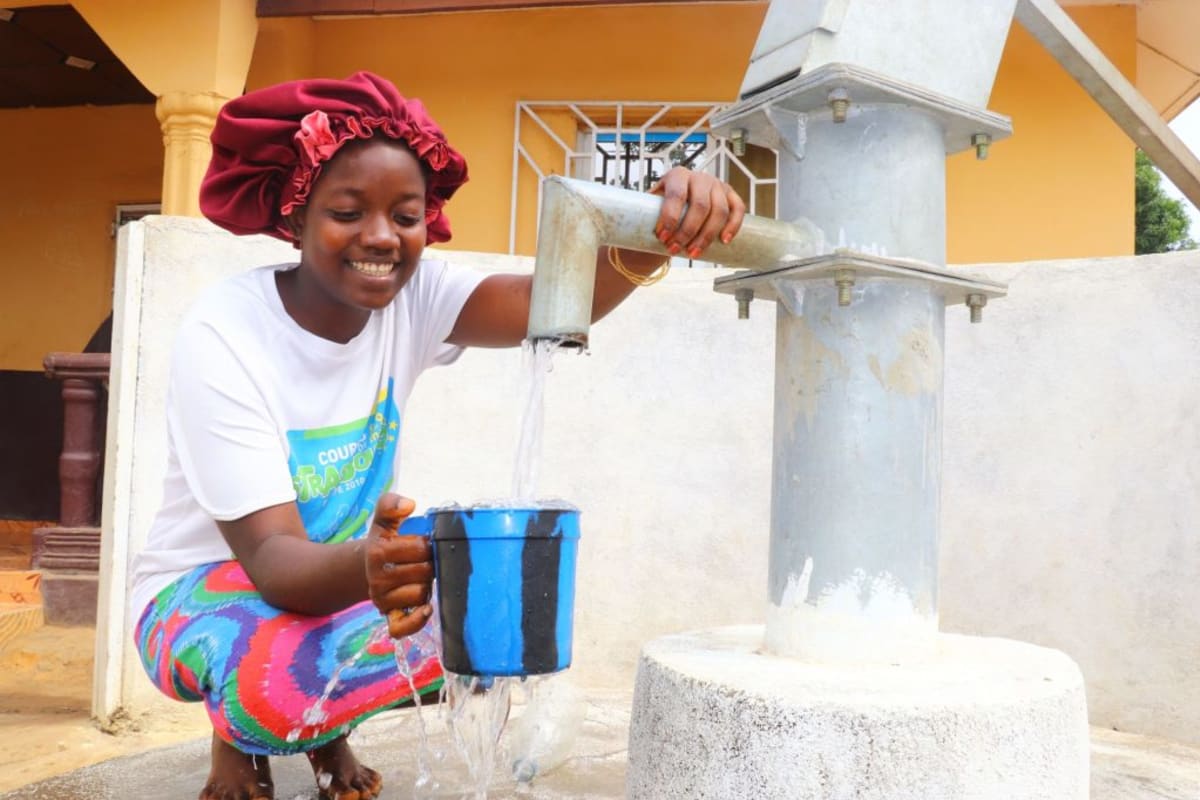




 Borehole Well and Hand Pump
Borehole Well and Hand Pump











